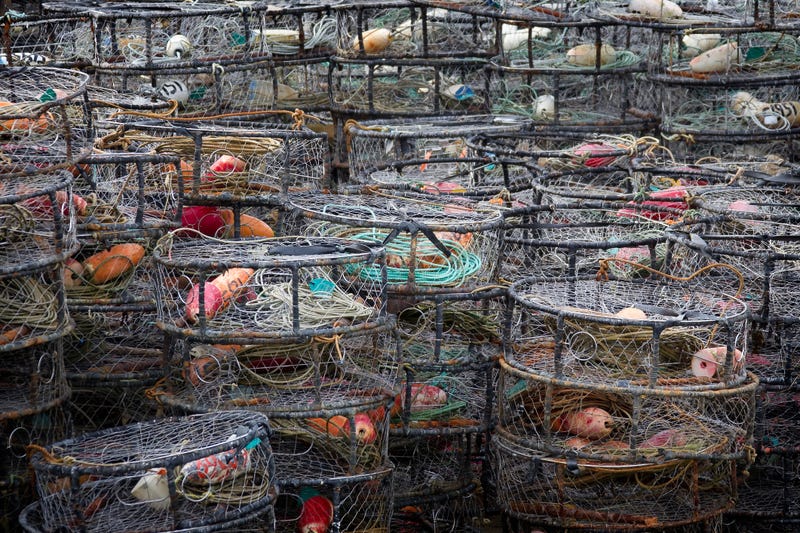
In recent years, billions of Alaska snow crabs have disappeared from the waters they call home in the Bering Sea. Now, due to the drop in populations, the harvest has been canceled for the first time ever, according to reports.
The announcement of the harvest being canceled was made by the Alaska Board of Fisheries and North Pacific Fishery Management Council.
The agencies said that populations have fallen below the regulatory threshold required for fishing, but the numbers are shocking, as there were 8 billion snow crabs in 2018 but only 1 billion in 2021.
The estimates come from Alaska Department of Fish and Game researcher Benjamin Daly, who told CBS News that the species is the most abundant of all the Bering Sea crab species caught commercially, but several factors are affecting the crabs.
"Environmental conditions are changing rapidly," Daly told CBS. "We've seen warm conditions in the Bering Sea the last couple of years, and we're seeing a response in a cold-adapted species, so it's pretty obvious this is connected. It is a canary in a coal mine for other species that need cold water."
But it’s more than that, as Daly told CNN it’s even more concerning when it comes to repopulation possibilities.
"The shock and awe of many billions missing from the population is worth noting – and that includes all the females and babies," Daly told CNN.
On top of the harvest for snow crabs being closed, this will also be the second year the Bristol Bay red king crab harvest will be closed due to overfishing, according to the agencies.
At current rates, more of the crabs have been fished out of the ocean than can be replaced naturally, a cause of concern for officials, according to Mark Stichert from the Alaska Fish and Game Department.
"So there were more removals from the population than there were inputs," Stichert explained at a meeting on Thursday.
While the technical definition is "overfished," it doesn't tell the whole story for what Stichert and many call a "scary number" as the population collapses.
Michael Litzow, the Kodiak lab director for NOAA Fisheries, shared with CNN that they call it overfishing because of the size level. Still, human-caused climate change has significantly affected the drop in population numbers. The crabs are cold-water species, and as waters warm around Alaska, the ocean will no longer be suitable habitat.
"There have been a number of attribution studies that have looked at specific temperatures in the Bering Sea or Bering Sea ice cover in 2018, and in those attribution studies, they've concluded that those temperatures and low-ice conditions in the Bering sea are a consequence of global warming," Litzow told CNN.
Scientists have reported that the waters in the Arctic have warmed four times faster than the rest of the planet, NBC News reported.
While things aren't the best at the moment, there has been some good news with some juvenile snow crabs appearing in the system. However, it will be years before they hit maturity and help regrow their population.
"That's better than not seeing them, for sure," Litzow said. "We get a little bit warmer every year, and that variability is higher in Arctic ecosystems and high latitude ecosystems, and so if we can get a cooler period that would be good news for snow crab."


